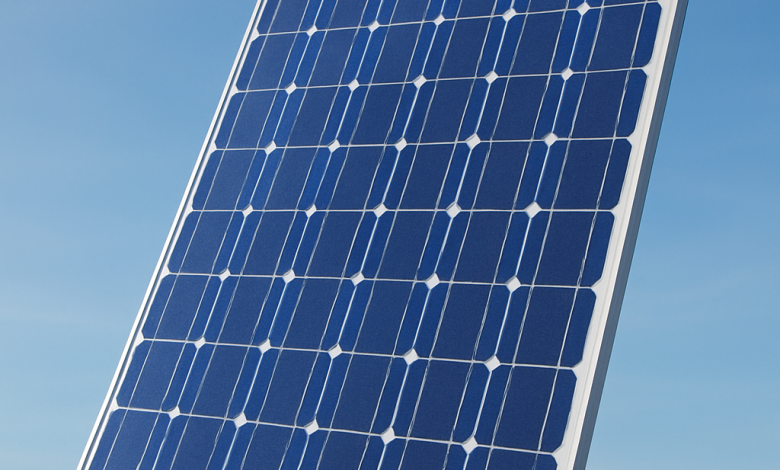How to Start a Solar Importation Business in Nigeria: Pros and Cons

Nigeria faces significant energy challenges, with over 85 million people lacking access to reliable electricity. This has created a booming market for solar energy solutions, making solar importation a lucrative business opportunity. However, like any venture, it comes with its own set of advantages and challenges.
This guide explores how to start a solar importation business in Nigeria, along with its pros and cons.
Step-by-Step Guide to Starting a Solar Importation Business in Nigeria
1. Conduct Market Research
Before diving into the business, research the Nigerian solar market to understand:
- Demand: Identify high-demand solar products (e.g., solar panels, inverters, batteries, charge controllers, solar lights).
- Competition: Analyze competitors’ pricing, suppliers, and customer preferences.
- Regulations: Understand government policies, import duties, and certifications required.
2. Register Your Business
- Choose a business name and register with the Corporate Affairs Commission (CAC).
- Obtain necessary permits from the Standards Organization of Nigeria (SON) and National Agency for Food and Drug Administration and Control (NAFDAC) (if dealing with solar batteries).
- Register for taxes with the Federal Inland Revenue Service (FIRS).
3. Find Reliable Suppliers
- Source high-quality solar products from countries like China, Germany, India, or the USA.
- Use platforms like Alibaba, Made-in-China, or direct manufacturer contacts to negotiate prices.
- Verify supplier credibility by checking reviews, certifications (e.g., ISO, TUV), and requesting product samples.
4. Understand Importation Logistics
- Shipping & Customs: Work with a freight forwarder to handle shipping, clearing, and duties.
- Import Duties: Solar products attract varying tariffs (5%–20%). Confirm rates with the Nigeria Customs Service.
- Warehousing: Rent a storage facility to keep inventory before distribution.
5. Choose a Distribution Model
Decide how to sell your solar products:
- Wholesale: Supply retailers, installers, and contractors.
- Retail: Sell directly to end-users via a physical store or e-commerce (Jumia, Konga, or your website).
- B2B Partnerships: Collaborate with construction firms, NGOs, and government agencies.
6. Marketing & Branding
- Digital Marketing: Use SEO, Facebook/Instagram ads, and Google Ads to reach customers.
- Offline Marketing: Attend trade fairs, partner with solar installers, and distribute flyers.
- Branding: Create a strong brand identity with a logo, website, and customer service.
7. After-Sales Support
- Offer warranties, installation services, and maintenance to build trust.
- Train technicians to handle repairs and customer complaints.
Pros of Starting a Solar Importation Business in Nigeria
1. High Demand for Solar Products
- Nigeria’s unreliable power supply forces homes and businesses to seek alternative energy solutions.
- Government initiatives (e.g., Solar Power Naija Program) encourage solar adoption.
2. Government Incentives
- The Nigerian government offers tax breaks and import waivers for renewable energy products.
- Policies like the National Renewable Energy and Energy Efficiency Policy (NREEEP) support solar businesses.
3. Profitability
- Solar products have high-profit margins (30%–50%) due to increasing demand.
- Recurring revenue from battery replacements and maintenance services.
4. Scalability
- The business can expand into solar installation, consulting, or large-scale solar farm projects.
- Opportunities to partner with international solar brands.
5. Environmental Impact
- Promotes clean energy, reducing carbon emissions and dependence on fossil fuels.
- Attracts eco-conscious customers and investors.
Cons of Starting a Solar Importation Business in Nigeria
1. High Initial Capital
- Importing solar products requires significant upfront investment in inventory, shipping, and warehousing.
- Fluctuating exchange rates (Naira to Dollar) can increase costs.
2. Competition from Substandard Products
- Cheap, low-quality solar products from China flood the market, making it hard to compete.
- Customers may prioritize price over quality, affecting brand reputation.
3. Complex Import Procedures
- Customs delays, high import duties, and documentation issues can disrupt supply chains.
- Bureaucratic bottlenecks and corruption at ports may increase costs.
4. Logistics & Storage Challenges
- Poor road networks increase transportation costs.
- Solar batteries require proper storage conditions to avoid damage.
5. Customer Awareness & Trust Issues
- Many Nigerians are skeptical about solar efficiency due to past experiences with fake products.
- Educating the market requires time and marketing investment.
Conclusion
The solar importation business in Nigeria is highly profitable due to the country’s energy crisis and growing renewable energy adoption. However, challenges like high startup costs, competition, and importation hurdles must be carefully managed.
By conducting thorough research, partnering with reliable suppliers, and implementing strong marketing strategies, entrepreneurs can build a successful solar importation business in Nigeria

